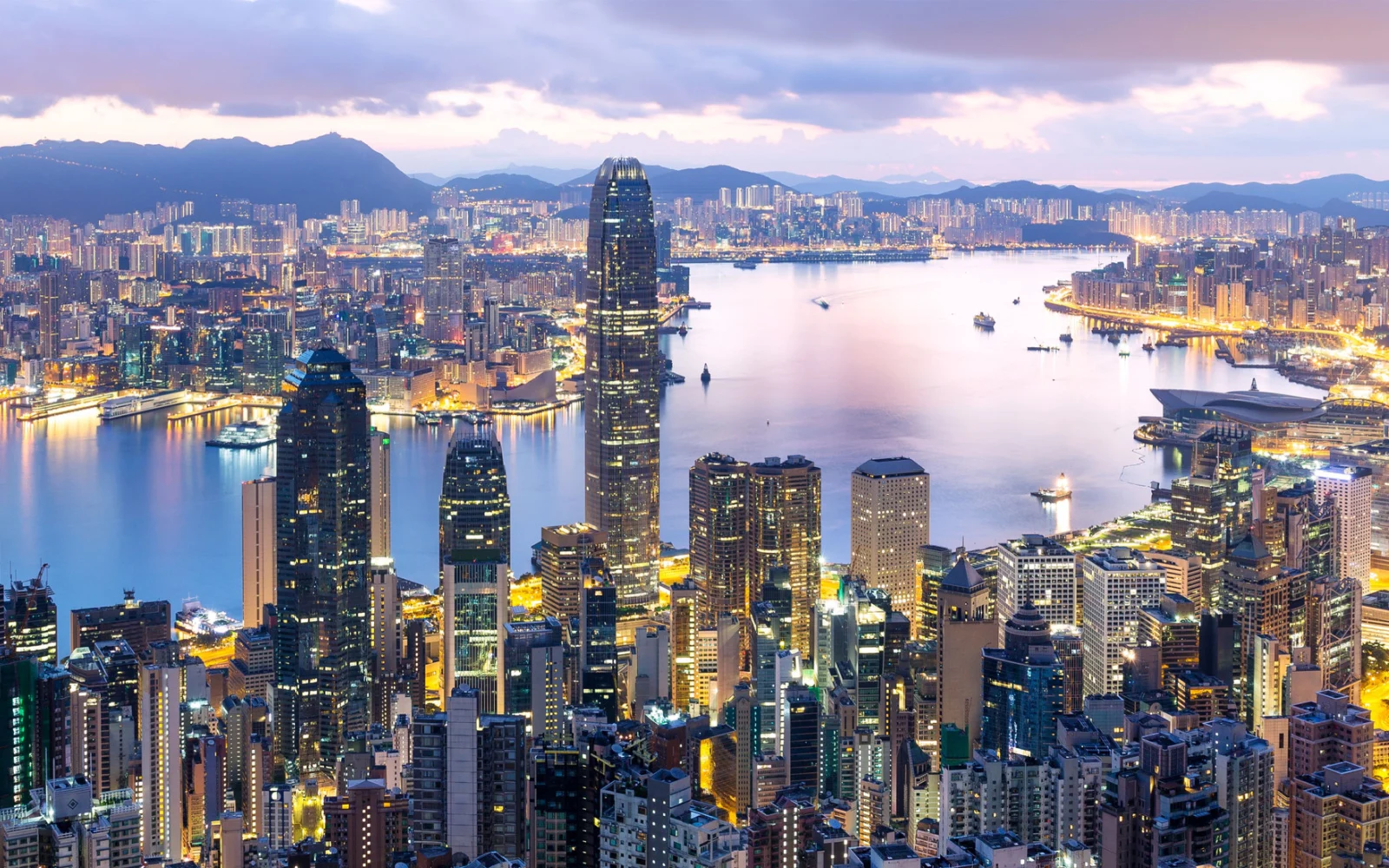Is Hong Kong safe to visit in 2026?
Hong Kong is mostly safe for travelers, with petty crime being common but violent crime against foreigners rare. Visitors should be aware of the tense political situation and avoid political discussions or demonstrations. The most prevalent risks are petty theft and scams, especially in crowded tourist areas, and drink spiking in nightlife settings.
The bustling city-state of Hong Kong is a destination that many people dream about. For years, it’s had a reputation as a center of international trade, culture, and more.
There are few cities quite like Hong Kong. You can check out the ultra-modern Hong Kong skyline, especially by sailing on the Star Ferry through Victoria Harbor. Just a short hike away from the modern city center, find historic sites such as the Tian Tan Buddha statue.
Of course, no visit to Hong Kong is complete without checking out its famous markets such as the Temple Street Night Market and other sites with globally renowned street food.
For many people, Hong Kong is also a more accessible gateway into China, with friendlier infrastructure and a looser visa regime.
Those are all good reasons to visit, but you probably want to learn more about the realities on the ground before booking any flights or hotels. So, is Hong Kong safe to visit? Here’s our take.
Is Hong Kong Safe to Visit?
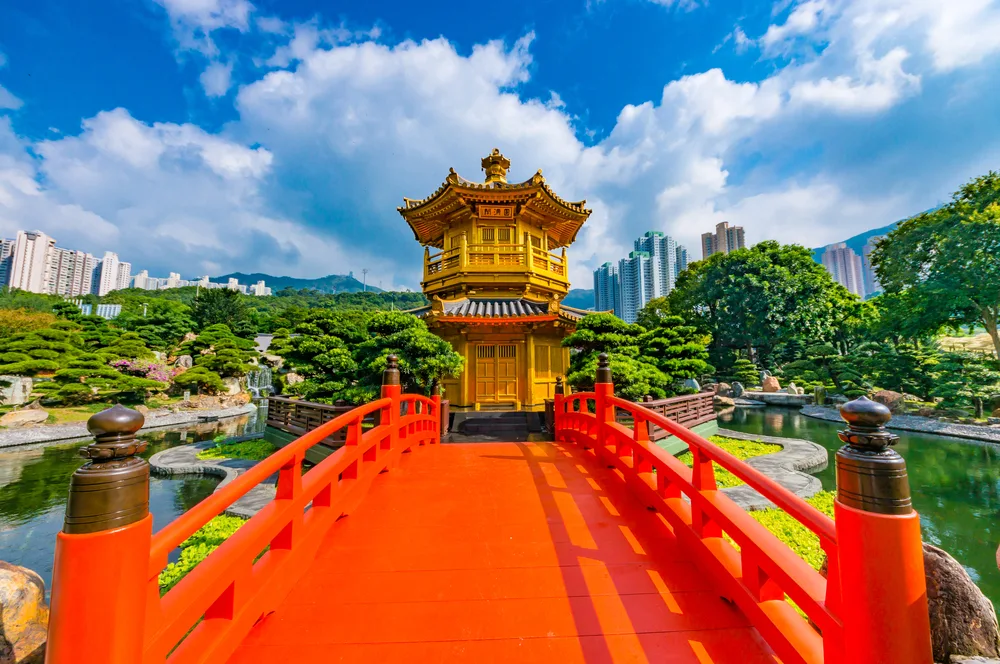
pickbiz/Shutterstock
Yes. Hong Kong is mostly safe to visit, and most foreign visitors typically don’t experiencing any issues. Petty crime is prevalent, but violent crime, especially against foreigners, is rare.
However, the political situation is still quite tense, although not as bad as it was with the protests several years ago, so you should be aware of that in the background before you visit.
The political situation is one of the primary reasons foreign governments advise their citizens to be careful about visiting Hong Kong, and visitors themselves might feel hesitation.
The United States government tells citizens to reconsider travel to the Special Administrative Region (SAR) of Hong Kong due to arbitrary applications of government laws and widespread repression, which worsened after the National Security Law was passed.
If you’re familiar with the recent news, you’ll know that in 2019 and 2020, there were widespread protests in Hong Kong. Activists protested against a bill that would allow the government to extradite people facing criminal charges to mainland China.
The protests escalated and encompassed other issues Hong Kong residents had with their changing relationship with the People’s Republic of China, including universal suffrage, government repression, and more.
As Hong Kong, a former British colony handed over in 1997, becomes slowly incorporated into mainland China, locals are anxious about what the future holds.
In response to the protests, which often turned violent and were met with violent repression, the government passed a national security law in 2020 that was used to target protesters.
The passing of the law started a territory-wide clampdown on dissent. The protests have since faded away as activists were either arrested or forced into exile or quieted their activities out of fear of repression.
Although protests are not widespread in Hong Kong anymore, you should still be aware of the tense political situation and avoid starting any political conversations with your new local friends.
You don’t know what someone’s political experiences are or if they might be in danger by talking to you. If you notice a demonstration occurring, leave the area immediately as they often become violent as police clash with protesters.
Don’t be critical of the situation while you’re in Hong Kong, even on social media, because there have been cases of the government coming for foreign citizens as well. Besides the political situation, there are a few other security threats in Hong Kong.
Visitors sometimes encounter crimes such as:
- Pickpocketing
- Bag snatching
- Scams
- Theft
- Drink spiking
Violent crimes in Hong Kong are rare and usually affect locals, not foreigners. Finally, keep in mind the weather advisories when visiting Hong Kong. Hong Kong gets severe typhoons during the typhoon season.
This runs from May to November, with August and September being the worst. Typhoons will often delay travel and cause flooding, so keep an eye on the weather report and try to avoid traveling during the absolute peak season.
Crime in Hong Kong
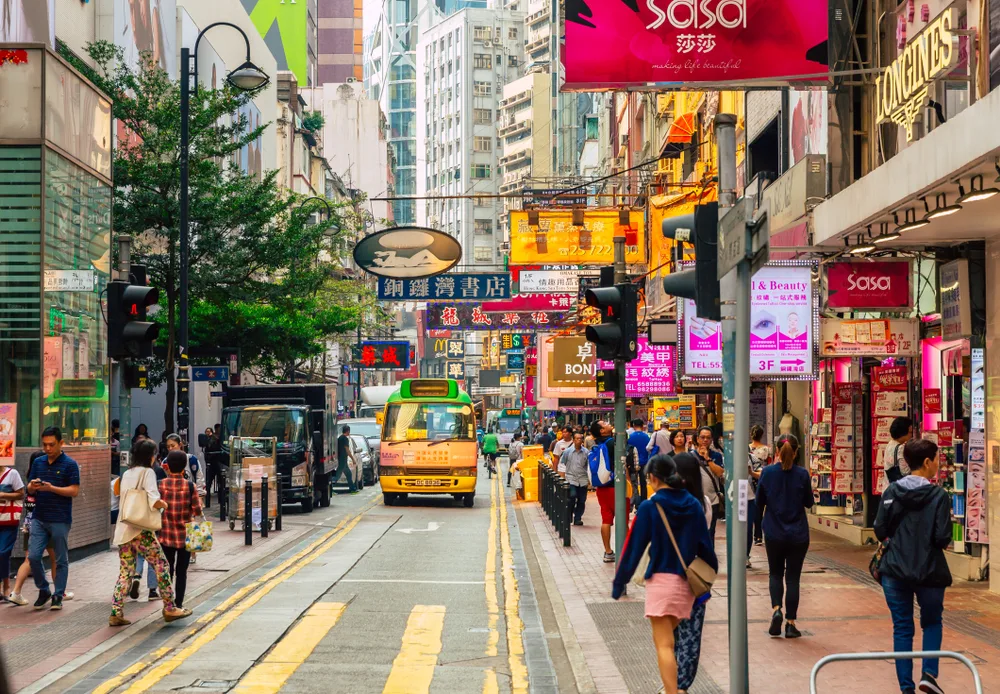
Street view of people walking on the Causeway bay in Hong Kong on November 14, 2019/Finn stock/Shutterstock
Crime rates in Hong Kong are fairly low and rarely affect foreigners. The vast majority of crime that occurs in Hong Kong is non-violent property crime. The Hong Kong authorities keep detailed crime statistics in English.
In 2022, the city experienced 70,048 total crime incidents. Of the crime total, 12.6% of incidents were violent crime incidents.
The most common violent crime is assault, followed by serious drug offenses and intimidation. Thefts make up 26% of the total reported crime rate. The most common type of theft is miscellaneous theft, followed by shop theft.
Deception, or fraud and scams, make up about 40% of the reported crime total. Other crimes occur in smaller percentages and rarely affect foreigners.
Hong Kong does have an organized crime presence, and local triads or gangs caused 2,554 related crimes in 2022 (the actual total is probably much higher since many other crimes can be connected to triad activities).
The triads are not as powerful as they once were, but they are still active and were even behind a lot of the violence during the civil unrest in Hong Kong in 2019 and 2020.
However, their activities rarely affect foreigners, so you don’t have to worry about them, no matter how many action movies you’ve seen.
Petty Theft
The most common crime in Hong Kong, and the one that foreigners are most likely to encounter, is petty theft. Petty theft comes in a few different forms, including pickpocketing, bag snatching, vehicle break-ins, and scams.
The Australian government warns its citizens that although violent crime is rare in Hong Kong, thefts are frequent, especially in crowded places that attract tourists, such as markets, trains, and squares.
Pickpockets will also loiter in the airport waiting area or hotel lobbies because that is when tourists feel more secure, even though they are still in public areas.
Hong Kong, in general, is crowded, but when you are moving around those areas, it pays to have a bit more situational awareness. Since most thefts are crimes of opportunity, you can easily prevent them by minimizing the opportunity for someone to take advantage of you.
Make sure that you have a firm grip on your valuables at all times. Keep wallets, phones, and ID documents in front pockets or zipped bags.
Never take an unzipped bag, such as tote bag, with you as thieves take advantage of people who seem to have a loose grip on their valuables. The UK government warns its citizens to also be careful when hiking in Hong Kong.
If you are exploring the Country Parks, stick to marked, well-trafficked trails as pickpockets and more aggressive robbers sometimes wait for lost tourists. Scams are a far more prevalent form of robbery in Hong Kong.
Thieves don’t see the point in turning to violence if they can use deception to part people from their valuables. There are many common scams in Hong Kong that you should watch out for.
Thieves will pose as someone needing your help, a fake police officer demanding you pay money to avoid arrest, or as someone offering a great deal on a tour or hotel accommodation.
Be wary of someone approaching you who seems too interested in you, and always ask to see the identification of a police officer. Some scammers contact their victims ahead of time via the internet.
Beware of people offering you money to invest in property in Hong Kong or to transport something across the border. Not only will you not get the money that they promised, but you might also run into serious trouble with Hong Kong authorities.
Drink Spiking
Although violent incidents against travelers rarely occur, there are situations where more aggressive incidents occur against foreigners. The most common incidents usually relate to drink spiking.
The Canadian government, among others, warns its citizens against drink spiking. Criminals will often spike foreigners’ food and drinks with drugs to make them compliant or unconscious.
Then, they rob the foreigners or at least skim their credit cards. There have been more serious cases of drink spiking leading to situations of sexual assault for female travelers.
Although this crime is prevalent enough that governments feel the need to warn their citizens about it, it is relatively easy to avoid. Make sure that you never leave your food or drinks unattended when you are out and about.
If you are exploring Hong Kong’s nightlife, always go with a few trusted people who can get you home if something bad happens. Trust your instincts — if a situation feels as if it is sketchy, run first, then ask questions later.
Avoiding Bad Areas
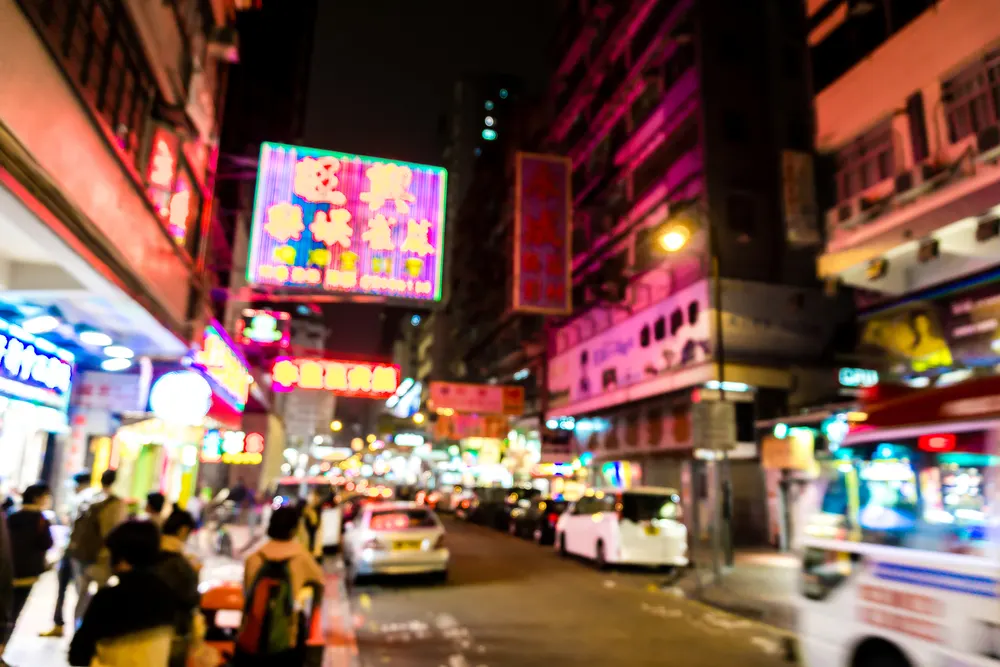
umpo/Shutterstock
Hong Kong doesn’t have many truly dangerous areas, but there are still some regions with elevated crime rates. According to the Canadian government advisory linked above, most incidents of drink spiking occur in Wan Chai.
You’ll probably want to go to the Wan Chai neighborhood because it is one of the city’s coolest neighborhoods with the best nightlife, but keep a close eye on your drinks when you go.
The region of Kowloon, once a separate city, is a prime spot for visitors looking for a glimpse of an older, more traditional Cantonese lifestyle.
It has a higher rate of pickpocketing than the rest of the city, so keep a close eye on your valuables when you’re around. Certain parts of Kowloon are unsafe at night, such as the railroad tunnels connecting the Kun Tong and East Rail lines.
Things to Consider
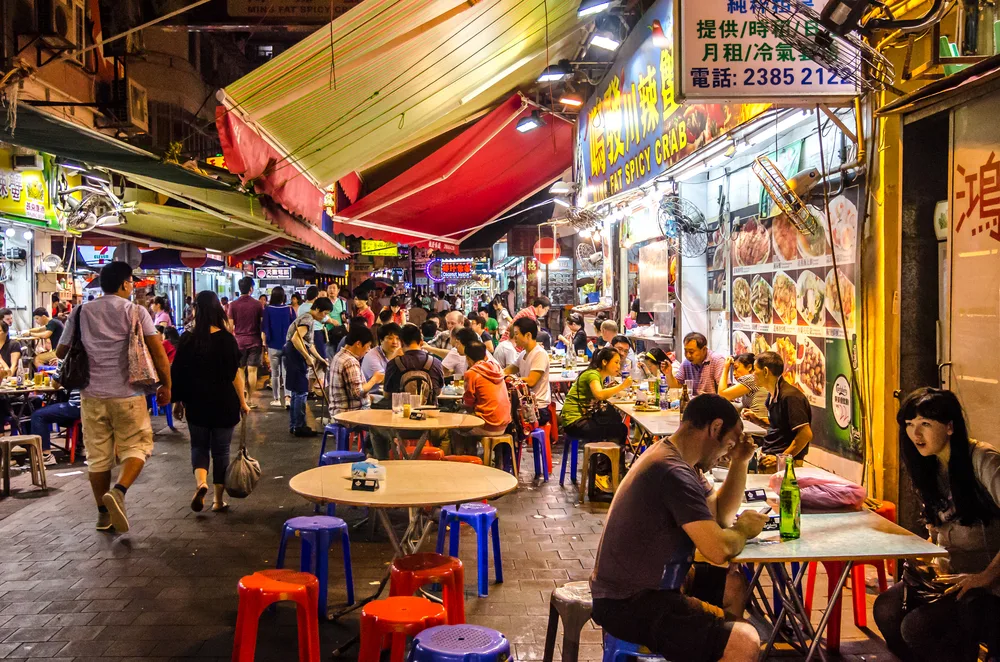
HONG KONG – OCTOBER 14:Temple Street :It is known for its night market and one of the busiest flea markets at night in the territory. October 14 ,2013 in Hong Kong/Korkusung/Shutterstock
Here are a few other things to keep in mind when visiting Hong Kong:
- Don’t make political statements or posts on social media while you are here to avoid attracting the attention of authorities.
- The tap water is not safe to drink, so stick to bottled or filtered water.
- Don’t leave Hong Kong without trying the street food, but make sure you stay safe while doing so! Visit stalls that seem clean and that have a long line—a suspiciously empty stall might be avoided by locals for a reason.
- All-black outfits may be trendy throughout the world, but most Hong Kong residents still associate this color with the local triads or gangs. Add at least one pop of color to your outfit. Black was also associated with the local protesters, so you don’t want to attract attention from the police.
Frequently Asked Questions

Rad Radu/Shutterstock
If you still have questions about visiting Hong Kong, here are a few other things to keep in mind:
Is Hong Kong a safe city to visit?
Yes, Hong Kong is a safe city to visit. It has very little violent crime, and the worst you will probably encounter is a few pickpocketing incidents.
Is Hong Kong good for tourists?
Hong Kong is great for tourists because it has many attractions, from historical sites and natural wonders to its own Disneyland. It also has great accommodations, shopping, and a safe atmosphere.
Do people in Hong Kong speak English?
English is actually one of the official languages in Hong Kong besides Cantonese. Many road signs and businesses are bilingual. However, many street vendors and other less educated people only speak Cantonese.
Is Hong Kong safe at night?
Hong Kong is so safe that you can even safely explore it at night. However, you will have to take a few more precautions than during the day.
Stick to well-lit streets in neighborhoods that you’ve already been to. The bustling nightlife districts usually have people around at all hours of the night, but the likelihood of getting your drink spiked is also higher there, so stay alert.
So, Should You Travel to Hong Kong?
Hong Kong is finally opening up to visitors again and is a safe, exciting destination as long as you stay aware of the political situation and avoid controversial topics. So what are you waiting for — book your trip today!



